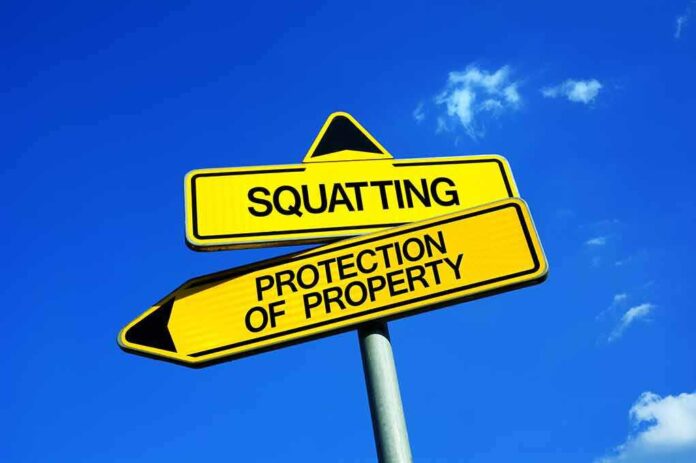New York legislators have passed a budget bill addressing illegal squatting, but experts argue it may not effectively solve the problem.
At a Glance
- New York passed a budget bill to address illegal squatting, distinguishing squatters from non-squatters
- The new provision clarifies that squatters are not tenants, but does not change existing rights
- Current law complexities may deter police from assisting property owners without an eviction warrant
- Experts suggest expediting squatter proceedings to alleviate delays for property owners
New York’s Legislative Effort to Address Squatting
In a recent move to tackle the issue of illegal squatting, New York legislators have passed a budget bill that aims to clarify the distinction between squatters and legitimate tenants. This legislative action comes as a response to growing concerns about property rights and the challenges faced by homeowners in reclaiming their properties from unauthorized occupants.
The new provision in the budget bill specifically addresses a common misperception that squatters gain rights after 30 days of occupancy. However, legal experts point out that this distinction was already clear under existing law. New York courts have consistently differentiated between squatters and tenants with valid possessory interests, raising questions about the effectiveness of this legislative fix.
Existing Legal Framework
Understanding the current legal landscape is crucial to grasp the implications of the new legislation. Section 711 of the Real Property Actions and Proceedings Law (RPAPL) requires property owners to initiate a special proceeding to remove tenants or lawful occupants. Importantly, squatters are not considered tenants or lawful occupants under state law.
“Squatters’ rights, or adverse possession, allow individuals to gain legal ownership of abandoned or vacant property after continuous occupation for a certain period.” – Hemlane
Section 713 of the RPAPL provides a pathway for property owners to start a summary proceeding against squatters with a 10-day notice to quit. However, recent legislative changes favoring tenants have inadvertently extended protections to squatters as well, complicating the eviction process.
Challenges for Property Owners
Despite the new provision in the budget bill, property owners still face significant hurdles in dealing with squatters. The complexity of current laws may deter police from assisting without an eviction warrant, leaving homeowners in a precarious position.
“If a property owner neglects their property and doesn’t remove squatters, the squatter may gain legal ownership through continuous occupation and maintenance.” – Hemlane
The new definition of squatter introduced in the bill does not address the fundamental issues of expense and delay in court proceedings that property owners must navigate. This has led to calls for more substantive reforms to expedite the process of removing unauthorized occupants.
Proposed Solutions and Future Outlook
In response to these ongoing challenges, some lawmakers are pushing for more comprehensive solutions. Senator Mario Mattera and Assemblyman Steve Stern have proposed a bill that would establish a formal complaint procedure for police to remove squatters. This approach aims to provide a more direct and efficient method for property owners to reclaim their premises.
Additionally, legal experts suggest that courts or the Legislature could potentially create expedited proceedings specifically for squatter cases. Such measures could significantly reduce the delays and financial burdens currently faced by property owners dealing with unauthorized occupants.
As the debate continues, it’s clear that balancing property rights with the need for due process remains a complex challenge. While the recent legislative efforts in New York represent a step towards addressing the issue of squatting, many argue that more comprehensive reforms are necessary to truly protect the interests of property owners while ensuring fair treatment for all parties involved.
Sources:
1. Squatting: Lifting the Heavy Burden to Evict Unwanted Company
3. SQUATTERS’ RIGHTS AND ADVERSE POSSESSION: A SEARCH FOR EQUITABLE APPLICATION OF PROPERTY LAWS











